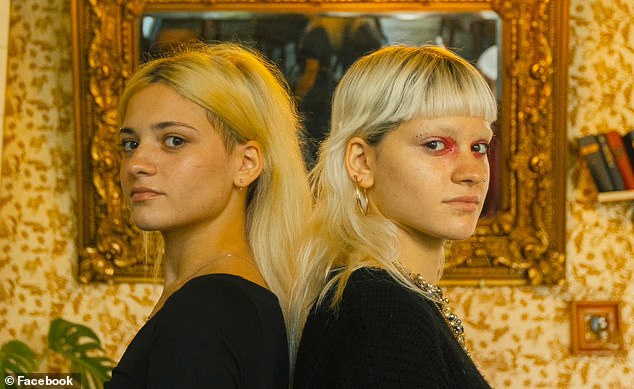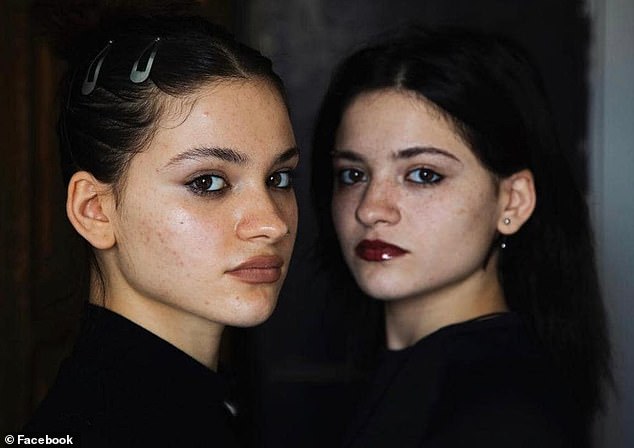My friends thought I’d dyed my hair after seeing a TikTok video – it turned out to be my secret twin
A pair of young women who grew up apart discovered they were twins thanks to TikTok after a friend saw one of them in a post and assumed it was the sister she knew, just with different hair.
Twins Ano Sartania and Tako Khvitia, now 21, were born in Kirtski, Georgia, on June 20, 2002 – but neither had any idea the other existed until they were 19 years old, Italian newspaper the Republic reported.
It turned out that shortly after birth, the pair had become victims of an adoption ring that delivered babies to wealthy families, which had raged for decades across the country with a population of less than four million people.
But how did Ano and Tako get separated in the first place?
Twins Ano Sartania and Tako Khvitia, both 21, were born on June 20, 2002, in Kirtski, Georgia, but neither had any idea the other existed until their late teens.

They were reunited as adults after Ano’s friend spotted her doppelgänger in a TikTok – initially assumed to be Ano
It was reported that the twins’ biological mother, Aza Shoni, fell into a coma for a few days after the birth of the healthy baby girls.
When she woke up, she was told they were dead.
Their father, Gocha Gakharia, who wrongly believed that the twins were not biologically his, had in fact sold them to a black market operation that would eventually place them in the care of two separate families: Ano in the capital of Tbilisi, and Tako in the small town of Zugdidi, near the Black Sea coast, the outlet reported.
Growing up, the two were both drawn to dancing and according to la Repubblica, when Ano took part in a dance competition at the age of 11, an attendee brought up the similarity.
But it wasn’t until they were both in their late teens that they got back together after Ano’s friend sent her a TikTok video with another woman who was a dead ringer for Ano, except for her blue hair.
Although the friend had assumed that Ano had dyed her hair blue, this was obviously not the case – and upon realizing this, Ano set out to find her doppelgänger.
She eventually ended up at the Georgian Facebook group ‘Vedzeb’ (which roughly translates to ‘I am looking’), which has more than 230,000 members.
Many share near-identical stories of being separated from their birth parents at birth under murky circumstances – or, perhaps even more horrifying, having seemingly healthy newborns taken from them in hospital, only to later be told by staff that their baby had died. .

Rather cinematically, the twin sisters first met as adults at a Tbilisi metro station
It turns out that between the 1950s and the early 2000s, it is estimated that more than 100,000 Georgia-born babies were illegally taken from their biological parents and sold to relatively wealthy families for thousands or even tens of thousands of dollars.
In the meantime, the adoptive families were told made-up stories that the children had been voluntarily given up by their biological parents or had otherwise been orphaned.
It is over this Facebook group that Ano and Tako finally found each other.
Like a scene from a movie, they met for the first time as adults in a Tbilisi metro station.
“I always felt like someone was following me everywhere I went, every day I had the same dream of a little girl, dressed in black, asking me questions about my daily routine,” Ano told the publication about the final reunion with her twin brother. sister.
The couple also eventually learned about a brother and sister, as well as the whereabouts of their mother, who had since moved to Germany.
As for their father? After the twins were reunited – and learned more about their surviving immediate relatives – DNA results confirmed the twins were his.
According to Ano, he now wants a relationship with them. “But that will never happen,” she told la Repubblica.
